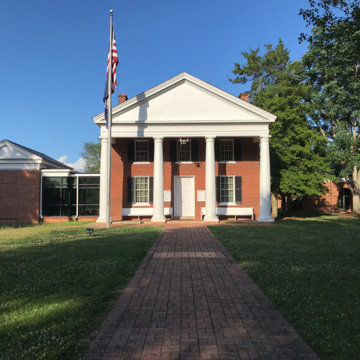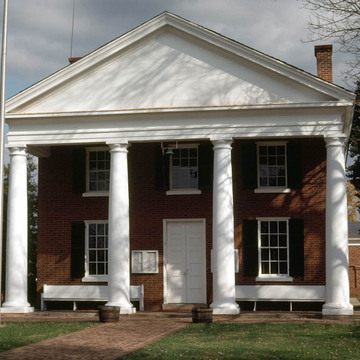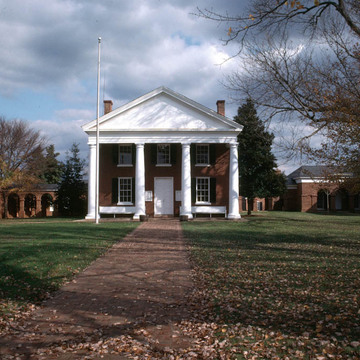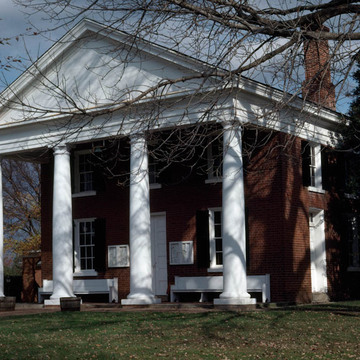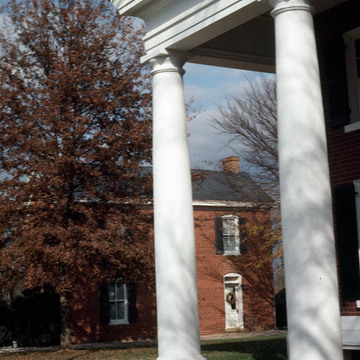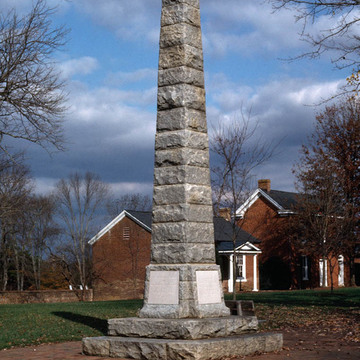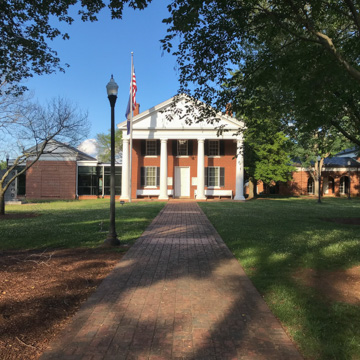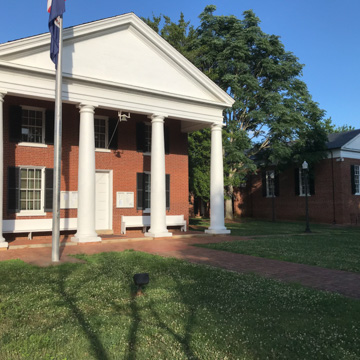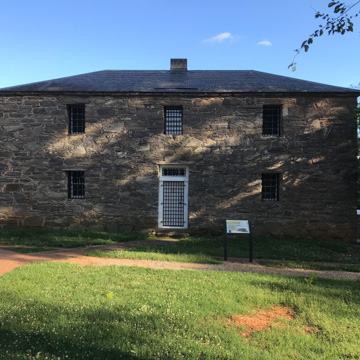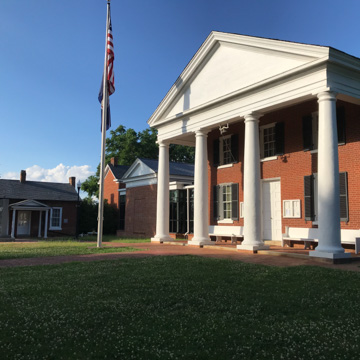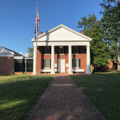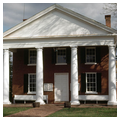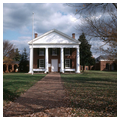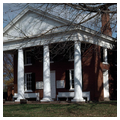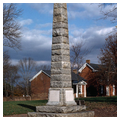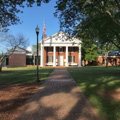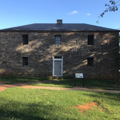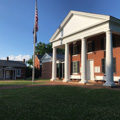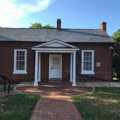Although the cornerstone refers to Cosby, who worked for Jefferson on the university, and Parrish, a Cumberland builder, as the architects for the building, in actuality the five county building commissioners furnished detailed specifications and drawings. These documents included those of the Buckingham County Courthouse, designed by Jefferson four years earlier and destroyed by fire in 1869. Hence this building is probably very close to what Jefferson would have wanted, a full Roman temple form with widely spaced Tuscan columns and entablature. The courthouse meets the ground and is not elevated. The Flemish bond brickwork on the entrance is of high quality with very tight joints. The interior is one large two-story space. The presiding authority is seated on the axis. Originally there was an apsidal end. A gallery across the entrance end of the space contains two jury rooms lighted by the windows under the portico. A 1955 addition is to the rear. In 1989–1990, Wood Sweet Swofford Architects of Charlottesville renovated and restored the building and put another addition to the rear. Also on the grassy courthouse grounds are the former jail (1848) in stone, a brick clerk's office (1826), and several minor structures. A brick wall was erected to keep out wandering cattle.
You are here
Goochland County Courthouse
1826, Dabney Cosby and Valentine Parrish. 1955, addition. 1989–1990, renovation and restoration, Wood Sweet Swofford. U.S. 522 and VA 6, Goochland Court House
If SAH Archipedia has been useful to you, please consider supporting it.
SAH Archipedia tells the story of the United States through its buildings, landscapes, and cities. This freely available resource empowers the public with authoritative knowledge that deepens their understanding and appreciation of the built environment. But the Society of Architectural Historians, which created SAH Archipedia with University of Virginia Press, needs your support to maintain the high-caliber research, writing, photography, cartography, editing, design, and programming that make SAH Archipedia a trusted online resource available to all who value the history of place, heritage tourism, and learning.






